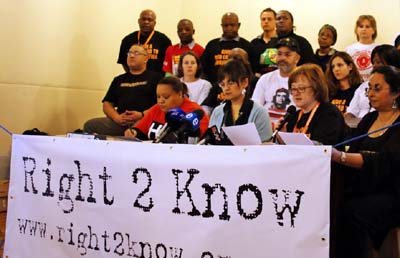Cape Town’s St George’s Cathedral, a rallying point for civil rights action during apartheid, was the site of the public launch on Tuesday of a mass campaign aimed at stopping a secrecy bill seen as a major threat to South Africans’ hard-won freedom.
An ad-hoc committee of parliament in Cape Town is now considering the Protection of Information Bill. Campaigners have dubbed the proposed legislation the “Secrecy Bill” because it would allow government officials wide discretion to classify information deemed “in the national interest.” If it became law in its current form, investigative journalists such as me could be prosecuted and face a prison sentence of up to 25 years for reporting on government information. Opposition to the bill and legitimate concerns about the erosions of South Africans’ constitutional rights have energized media and civil society groups in recent weeks, and galvanized a grassroots campaign called the Right2Know.
“We accept the need to replace apartheid-era secrecy legislation. However, this bill extends the veil of secrecy in a manner reminiscent of that same apartheid past,” the Stop the Secrecy Bill statement says. To emphasize this point, the campaign is planning a week of civil action to commence on October 19–the commemoration of Black Wednesday in 1977, when the apartheid regime banned newspapers and black consciousness organizations. This is likely to include a march on parliament. Campaign leaders told journalists and concerned members of the public at the launch that they would consider a
